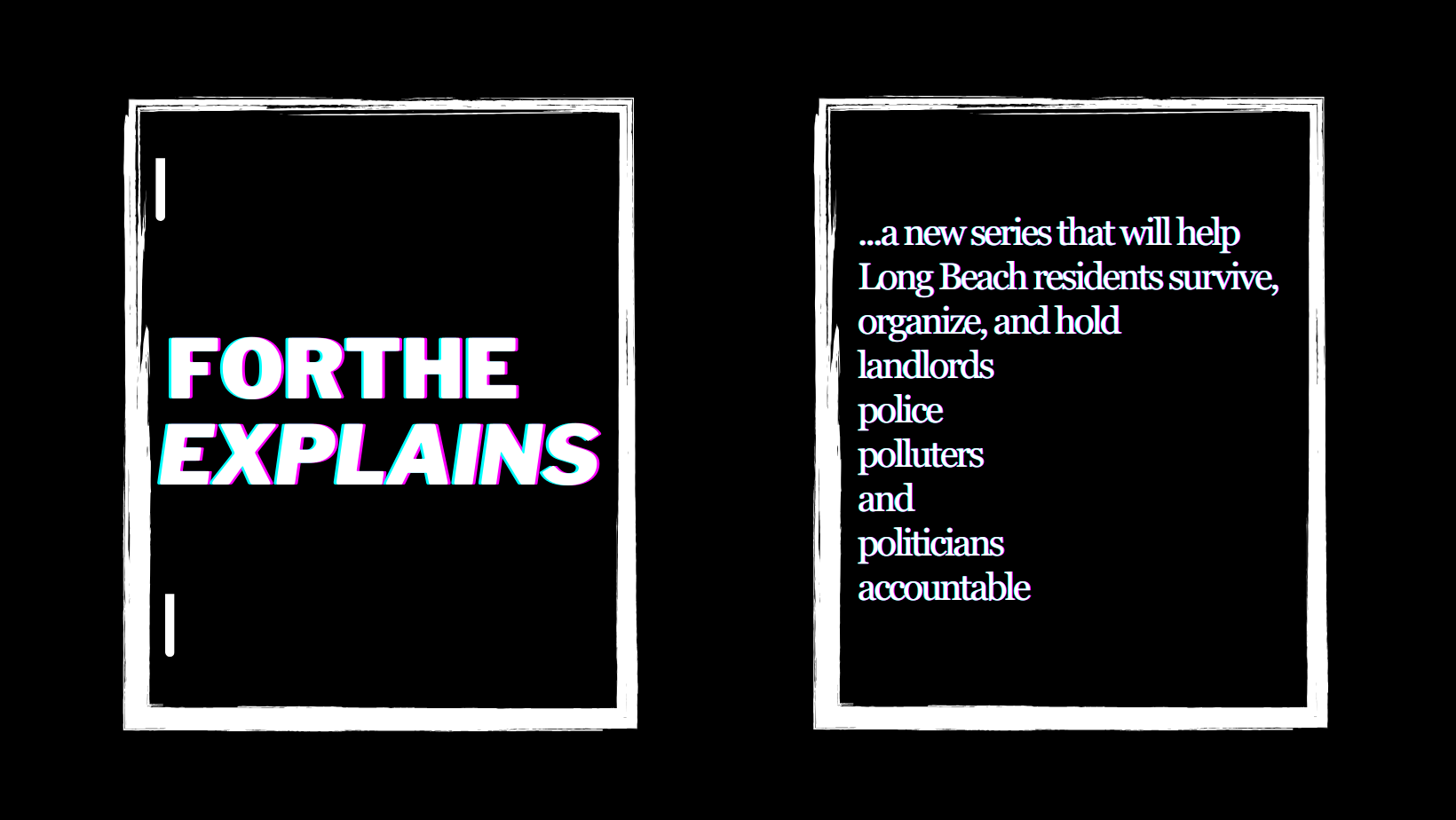Announcing New Series FORTHE Explains
A new series that will help Long Beach residents survive, organize, and hold landlords, police, polluters, and politicians accountable
4 minute readCurious about how much money a company donated to your councilmember last election? Perhaps you want to form a tenants union or track down a slumlord who’s been hiding behind a shell company. We’re going to show you how and more!
We’re excited to announce a new series of explainers debuting this week that will walk you through finding important city records, accessing lifesaving resources, and understanding who owns and controls Long Beach.
We believe that to achieve a more just city, we need to arm residents with the information that can help them survive, organize, and fight back in an era of staggering inequalities, crushing debt, unaffordable housing, and rising economic insecurity. For that reason, this series will emphasize publishing and distributing information that can help our city’s residents subvert everyday power imbalances, improve media literacy, build collective resilience, and empower those most often in economically marginalized positions: renters, students, single mothers, immigrants, and poor people.
Some of the questions we’ll be answering in the coming weeks and months include: What to do if you receive an eviction notice, who owns the local media, where to access harm reduction resources, how to participate in a City Council meeting, and how to unionize your workplace.
The goal of this explainer series is two-fold.
We hope to redistribute power by democratizing information. What does that mean? Too often the information you need to hold public officials accountable, learn about what your city government is doing, follow the money, and fight back against negligent landlords and exploitative bosses can be hard to access and hard to understand. Often that’s on purpose—because information is power.
Eventually, our goal is to build a living library of deeply researched, localized guides published and distributed online and in print—in English, Spanish, and Khmer. We’ll be partnering with our friends at PLACE, our city’s very own community print studio, to make physical copies of these explainers for those who may not have regular access to the internet. You’ll soon see our free booklets in cafés, laundromats, bars, and bookstores. We’ll be partnering with mutual aid groups, farmers markets, community groups, and libraries to further distribute this information as widely as possible.
We also plan to integrate ways that readers can suggest topics they’d like us to explain in the future. We hope for this to become a public service that is responsive to the needs of the communities we serve.
Our second goal is to provide mentorship, editorial support, and paid work to newly graduated and early career journalists, who will be authoring most of these explainers. While our city has a university with a journalism program, there are few opportunities for graduates to learn the ins and outs of local reporting in Long Beach. And we are all worse for it. Research shows that fewer local reporters means lower voter turnout, as well as more corruption, waste, air pollution, and corporate crime.
There needs to be more training grounds for those who want to be local reporters. We want to help build that. For the last few months, we’ve been working behind the scenes to connect and collaborate with a network of local up-and-coming journalists to put this project together. In the coming months, these reporters will have opportunities to participate in editing workshops and trainings to further their skills in local reporting and investigative techniques.
Here’s where we need your help. A collection of information designed to help the people of Long Beach survive, organize, and fight back against powerful people and systems that cause harm has never existed before. We’ve been able to get this project off the ground thanks to our generous subscribers. But for us to build this project out long term, we need additional support.
Please consider making a one-time donation or becoming a monthly donor below. All donations are tax deductible and will go directly toward paying writers and printing costs for this project.
If you’re not able to contribute financially, you can still help out by sharing this post and asking your Long Beach network to follow us on social media.


 editors@forthe.org
editors@forthe.org




